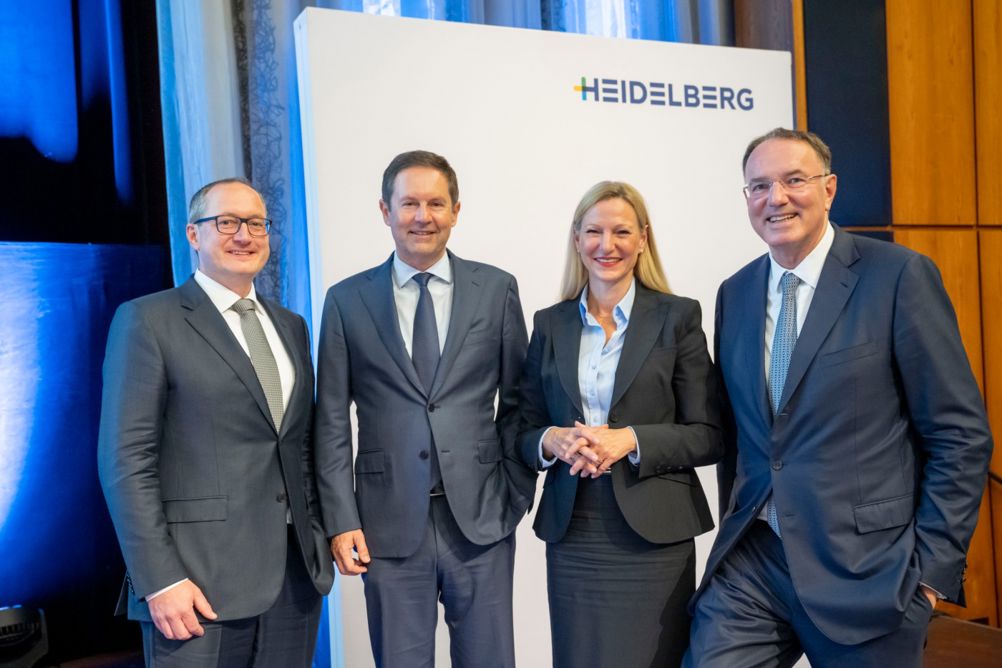Otto took over from Dr Ludwin Monz on 1 July. Speaking at Heidelberg’s AGM meeting yesterday, he said he was bringing his many years of expertise in manufacturing and turnaround situations to his new role.
He stated: “To leverage the full potential of a company, I think you need an ambitious, dynamic, and strategic approach. Above all, though, you also need the courage to take on difficult issues and challenges.
“Projects like these have always followed me and been a constant source of motivation. My teams and I have found solutions for sites that are experiencing high cost pressures, particularly in Germany, generated growth in established and new areas of business, and built on existing strengths, especially in global markets.”
Otto noted that Heidelberg was currently on a stable financial footing, and had achieved its financial targets for FY23/24 despite many challenges including “a tense geopolitical environment”.
Packaging-related products now account for 52% of group sales, overtaking commercial printing for the first time.
Otto was at Drupa, where Heidelberg unveiled its new partnership with Canon for sheetfed inkjet, and he gave his impressions of the event, where some 130,000 visitors came to Heidelberg’s booth.
“In the printing industry, we don’t just have customers, but genuine fans. Owners are proud of their Heidelberg presses, and many printers are just as proud to operate the machines,” he said.
“We very likely succeeded in gaining a few more customers and fans. Showcasing future-proof solutions won us lots of orders.”

Regarding future plans, he said Heidelberg needed to develop a strategy that puts the business “back on a growth trajectory” and said this would be achieved using the know-how within the group’s employees, rather than external consultants.
He said that alongside head of sales and marketing Dr David Schmedding and CFO Tania von der Goltz the three focus areas for the board would be firstly internationalisation, with almost all of Heidelberg’s sales and service units been combined into one holding company as of 30 June, and with the door firmly open to “further partnerships”.
“We are currently examining potential partnerships that would enable us to use our global sales and service network to tap into new sectors, too. Our cooperation with Canon, for example, demonstrates that we can offer a genuine benefit in this context,” he said.
Secondly expanding Heidelberg’s value chain, with an example being the Boardmaster press which will expand its applications into paper-based flexible packaging.
Otto also plans to grow Heidelberg’s industrial contract manufacturing business, and capitalise on its expertise in complex systems, mechanical component manufacturing, and industrial electronics.
“What’s more, we do all this in the heart of Germany,” he stated.
“This was long seen as a disadvantage – but, in the future, it will actually be more of an advantage. In the wake of disruption to supply chains and wars, the risk assessments being carried out by businesses are starting to shift.
“In our globally networked world with high levels of geopolitical tension, we firmly believe that our skills and capacities will once again take on a greater and, above all, dependable significance in the future.”
However, Otto also warned that Heidelberg’s personnel costs were “very high compared with other companies in our sector”, at more than 30% of sales.
“This is why we are holding talks with the works councils and the IG Metall union about setting up a future fund. The idea behind this fund is that it would be a pot of money for financing further training, redevelopment, and investments.
“The sources for this fund would include concessions made by all groups of employees – from the management board and other management staff to all employees in general. These talks between the social partners have so far been very focused and constructive.”
Heidelberg employs around 9,600 people worldwide.
Two new members of the supervisory board were appointed at the AGM: Jeppe Frandsen and Karin Dohm.
Frandsen worked at Canon for more than 20 years, rising to become executive VP of Canon Europe.
He left Canon at the end of 2021 and is currently an angel investor and chairman of a number of tech businesses, including Denmark’s Shape Robotics.
Dohm has wide-ranging financial experience in other industries.










